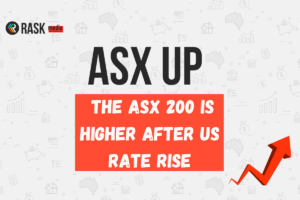
US interest rate raised 0.75%…ASX shares up. What gives?
The ASX share market is up today, after gains on the US share market. That comes after the US interest rate increased another 0.75%.
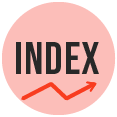
The S&P/ASX 200 Index (INDEXASX: XJO) is an Australian stock market index, created and maintained by Standard & Poor’s (S&P). It tracks the value of the 200 largest public companies ranked by their market capitalisation, adjusted for the shares that are actually available on the market. The S&P/ASX 200 will increase if enough companies see their share prices rise, and fall when they are sold down.
If you’re studying the stock market’s return over time, don’t forget about dividends. The XJO index does NOT include dividends paid by companies. If you want a more complete picture of the performance of Australian shares, use the S&P/ASX 200 Net Total Return Index (INDEXASX: XNT) index.
This chart shows performance of the index and S&P/ASX 200 Net Total Return (INDEXASX: XNT), which includes the impact of dividends being reinvested. The three most popular indices for Australian shares are the All Ordinaries (INDEXASX: XAO), S&P/ASX 200 Net Total Return (INDEXASX: XNT), and S&P/ASX 200 (INDEXASX: XJO).

The ASX share market is up today, after gains on the US share market. That comes after the US interest rate increased another 0.75%.

On Wednesday, the Australian share market, or S&P/ASX 200 (INDEXASX: XJO) and All Ordinaries (ASX: XAO), hits its lowest level since 2020. Overnight, however, a firm 0.75% increase in US interest rates allowed the US stock market to bounce 1.5%.

The S&P/ASX 200 (INDEXASX: XJO) and All Ordinaries (INDEXASX: XAO) took a bath on Tuesday, following US markets overnight. Today, Wednesday, the S&P/ASX 200 is tracking 0.4% lower.
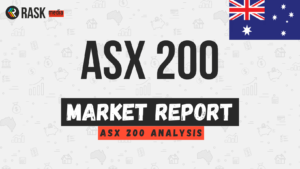
The Commonwealth Bank of Australia (ASX: CBA) share price and ASX bank shares have been weighing on the market, or All Ordinaries (INDEXASX: XAO).
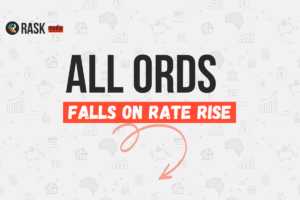
The All Ordinaries (ASX: XAO) and S&P/ASX 200 (INDEXASX: XJO) were on hold ahead of the RBA’s latest board meeting and interest rate decision. Elsewhere the Zip Co Ltd (ASX: ZIP) share price was dumped by investors.
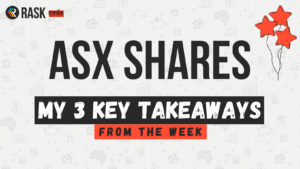
The S&P/ASX 200 (ASX: XJO) delivered another positive week while US stock markets finished in the red. Here are my key takeaways.
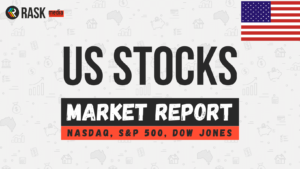
US stock markets couldn’t keep the positive streak going beyond one week as Tesla (NASDAQ:TSLA) shares made headlines on Friday.

The S&P/ASX 200 (INDEXASX:XJO) finished the week on another positive note as ASX iron ore shares like BHP (ASX:BHP) made headlines.
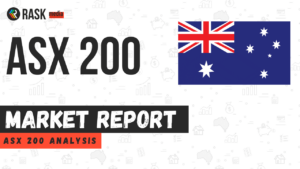
The Australian share market, otherwise known as S&P/ASX 200 (INDEXASX: XJO) or All Ordinaries (INDEXASX: XAO), continued on a downward trend on Wednesday, to open the month of June by falling 0.8 per cent.

The ASX share market is up today, after gains on the US share market. That comes after the US interest rate increased another 0.75%.

On Wednesday, the Australian share market, or S&P/ASX 200 (INDEXASX: XJO) and All Ordinaries (ASX: XAO), hits its lowest level since 2020. Overnight, however, a firm 0.75% increase in US interest rates allowed the US stock market to bounce 1.5%.

The S&P/ASX 200 (INDEXASX: XJO) and All Ordinaries (INDEXASX: XAO) took a bath on Tuesday, following US markets overnight. Today, Wednesday, the S&P/ASX 200 is tracking 0.4% lower.

The Commonwealth Bank of Australia (ASX: CBA) share price and ASX bank shares have been weighing on the market, or All Ordinaries (INDEXASX: XAO).

The All Ordinaries (ASX: XAO) and S&P/ASX 200 (INDEXASX: XJO) were on hold ahead of the RBA’s latest board meeting and interest rate decision. Elsewhere the Zip Co Ltd (ASX: ZIP) share price was dumped by investors.

The S&P/ASX 200 (ASX: XJO) delivered another positive week while US stock markets finished in the red. Here are my key takeaways.

US stock markets couldn’t keep the positive streak going beyond one week as Tesla (NASDAQ:TSLA) shares made headlines on Friday.

The S&P/ASX 200 (INDEXASX:XJO) finished the week on another positive note as ASX iron ore shares like BHP (ASX:BHP) made headlines.

The Australian share market, otherwise known as S&P/ASX 200 (INDEXASX: XJO) or All Ordinaries (INDEXASX: XAO), continued on a downward trend on Wednesday, to open the month of June by falling 0.8 per cent.




